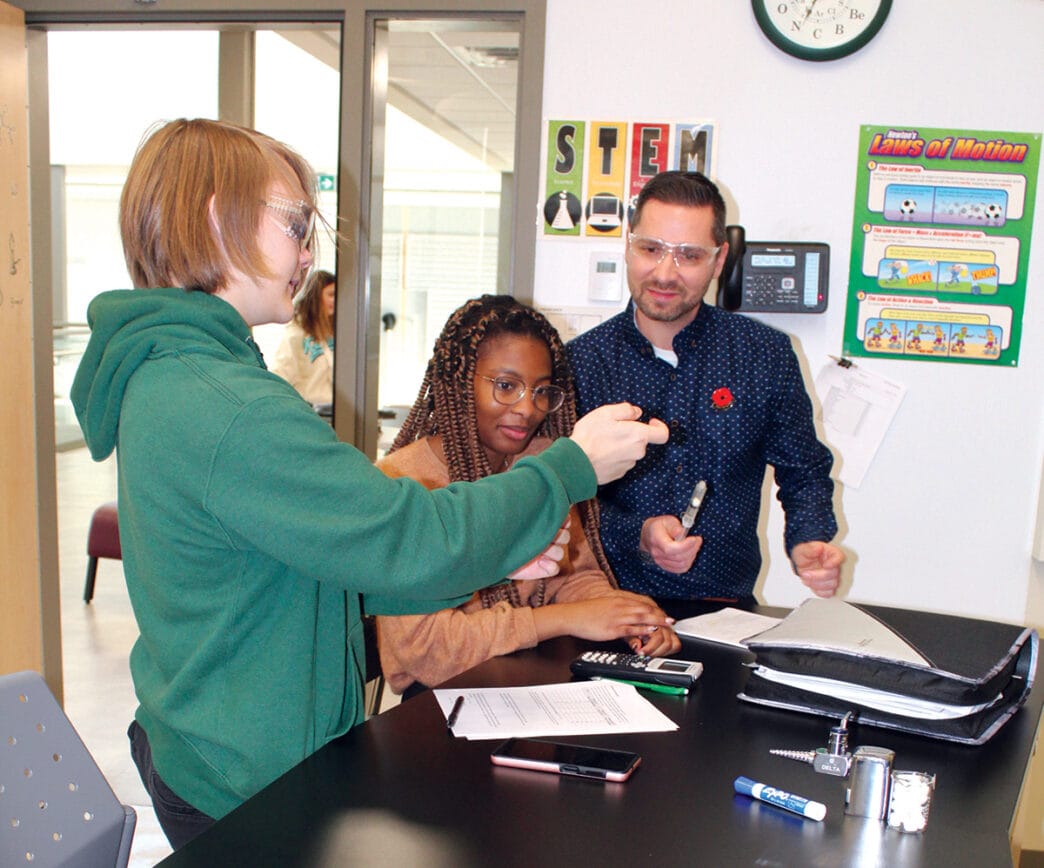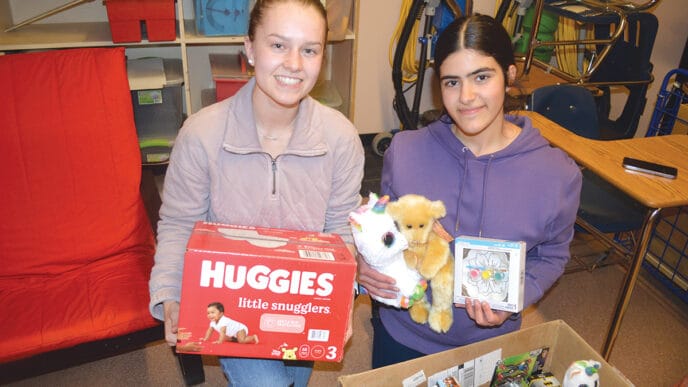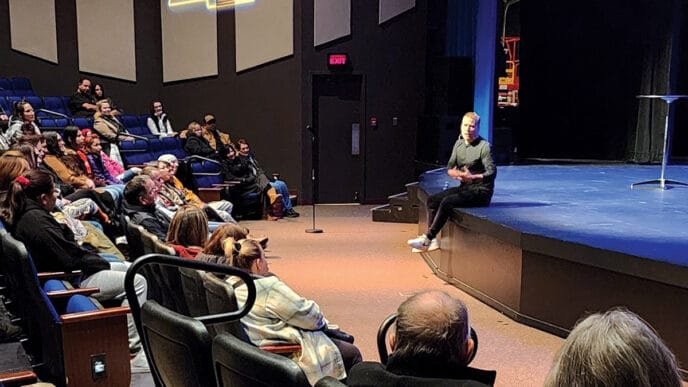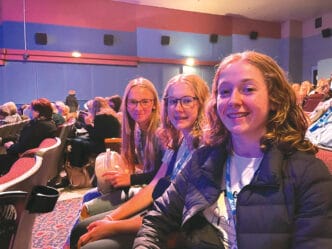HRHS AP chemistry students Joseph Coulter and Rickeliah Campbell prepare to conduct an experiment with guidance from their teacher, Jade Scutt (right). Photo Jeannette Benoit-Leipert
A brand-new element has been added to the science program at Holy Rosary High School (HRHS).
The advanced placement (AP) chemistry course gives students a chance to sample college-level chemistry before even setting foot in a college or university.
“When I saw the opportunity to take an AP chem, I’m like, this is nice—I can get a college credit. I go into it and it’s like, oh wow, this is a lot more math than physical science was, so it was definitely challenging,” said Grade 12 student Rickeliah Campbell, who has her sights set on a nursing career, and possibly continuing into med school.
“It just gets me more prepared for how the professors will work and how fast-paced it is compared to high school.”
AP chemistry teacher Jade Scutt has been teaching chemistry at HRHS for 17 years, and he is charged-up about being able to offer a higher level of knowledge to students.
“This is the first year we’re offering chemistry AP. The first time it’s offered in Lloydminster, and it’s one of the only chemistry APs in all of Saskatchewan,” said Scutt.
“Advanced placement gives them those university/college level outcomes that they need for the first year level of university, and if they can succeed in Grade 12 and do the college level university courses or outcomes right now, they could potentially even get their credit for first year college.”
Some other modifications are being made to the younger grade levels as well, to get students with an interest in science on the right path to succeed in AP chemistry.
“In terms of an academic background, we want them (students) to be in our pre-AP program, which will build up the skills as they move up. That’s something we’re building into our Grade 8, 9, 10 and 11 classes,” said Scutt.
“But ultimately, if they are finding they are meeting their objectives in their prior science classes, and want the challenge of taking AP chemistry, they’re welcome to join and do their best.”
For some students, like Joseph Coulter, taking the AP course was an easy choice.
“I’ve always been interested in chemistry, since Grade 6 or 7 science. I’ve always been interested in the applied mathematics and everything about it. I think I’ve known that I’ve wanted to go all the way in university since Grade 9 or 10,” said Coulter.
“The AP course this year was a huge surprise. I didn’t know it was coming last year, but this year it’s definitely going to be a huge help.”
Coulter, who has already been accepted into the University of Alberta, says Scutt has been an outstanding teacher and mentor.
“Mr. Scutt has been really great. There are so many more opportunities we have in our class than I’ve had other years,” said Coulter.
“It’s been great to have such a passionate teacher this year, that knows how to make the semester better for his students.”
There’s no doubt that Scutt is passionate about science. Something he enjoys about teaching AP chemistry is the opportunity to engage in more hands-on experiments with the students.
“One of the main things about having the AP chemistry is more hands-on, more lab experiences so they can experience their learning and come to their conclusions based on what the data is showing them,” said Scutt.
“They really need to express the why and the how of the science. Instead of just looking at the math and solving the problems, they have to explain what the reason behind it is and really be able to describe that on a deeper molecular level.”
















